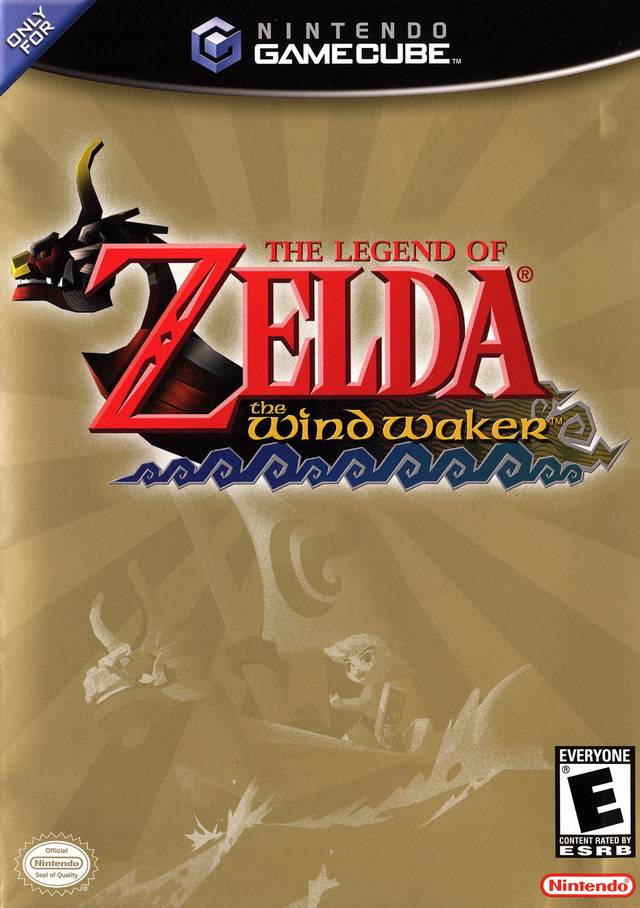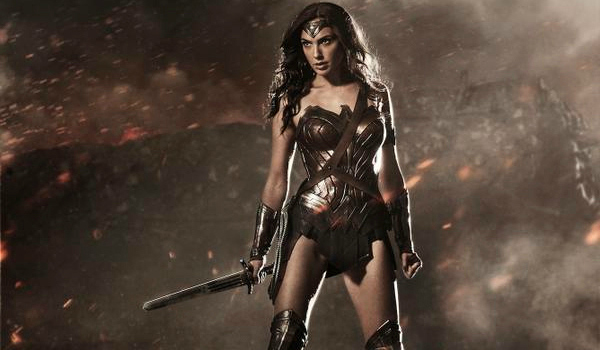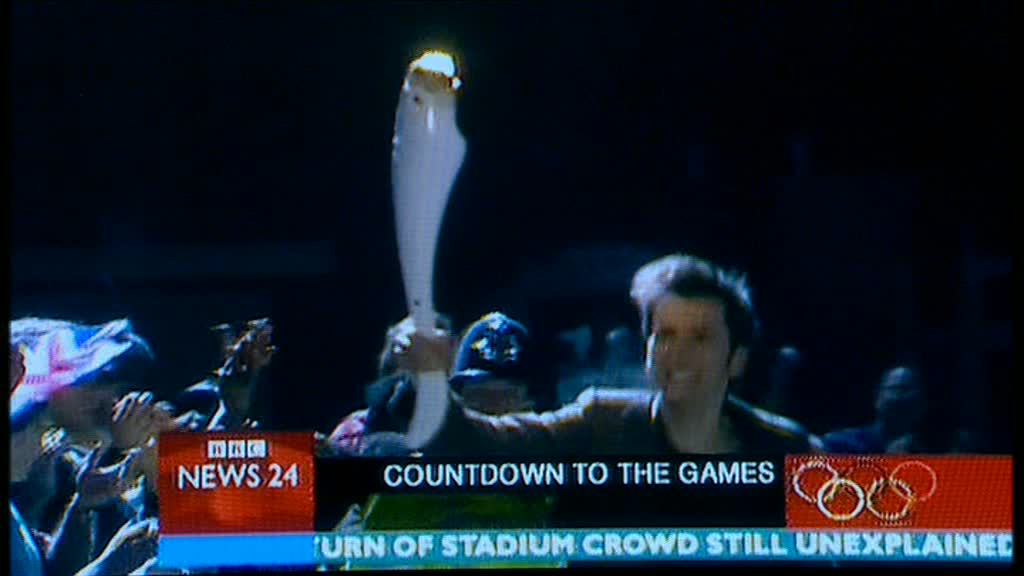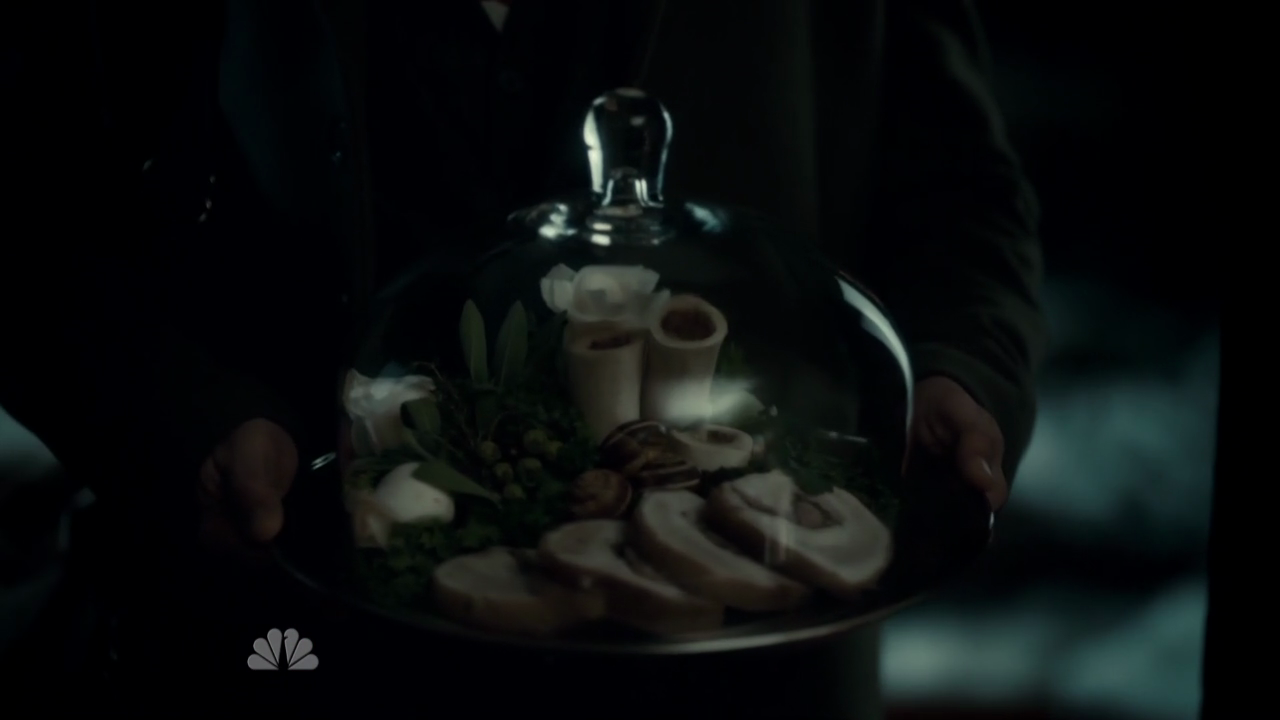Eruditorum Presscast: World Enough and Time
I’m joined this week by Chris O’Leary, author of Rebel Rebel, to talk about World Enough and Time. You can get that here.…
I’m joined this week by Chris O’Leary, author of Rebel Rebel, to talk about World Enough and Time. You can get that here.…
 Do you ever wonder why Celtic music always sounds so sad? Because it is always lamenting something it lost so long ago it can’t even remember what it is longing for anymore.
Do you ever wonder why Celtic music always sounds so sad? Because it is always lamenting something it lost so long ago it can’t even remember what it is longing for anymore.
The Celtic-infused sea shanty that scores the intro sequence to The Legend of Zelda: The Wind Waker is the overture. Singing its own microcosm, The Wind Waker’s opening gives way to a declaration of its rights and standings amongst the unfolding Legend. A tapestry of recap. No mere retelling, this Legend. This is the next part of an unbroken, continuous story. A serial. “Act 3, Scene 1” is written on the script of our experiential lives.
Sure, this is a Legend that has been passed down “from generation to generation”. All Legends must be. But this Legend is specifically The Legend of Zelda: Ocarina of Time. Elevated to the status of myth itself, Ocarina of Time‘s version of The Legend of Zelda has become a story from a distant Golden Age. The new Ur-Zelda and its vaunted status etched into the fabric of the Legend itself. But of course, it would be. Why wouldn’t it be? Ocarina of Time was the greatest and most successful of them all.
But, like all Golden Ages, this is an imagined one. And the Winds of Change blow for it, as they must blow for all things. Their story retold in the broadest of strokes from the coarsest of brushes, the Hero of Time is explicitly namechecked for the first time in a game that is not their own. And it is their absence, and the absence of the Hero archetype they created, that weighs heavy on Hyrule’s people now. After the triumphant events of The Legend of Zelda: Ocarina of Time where the Hero travelled across the ages to seal away the Great Evil wielded by the thief of the desert, the stories tell us, Ganondorf Drogmire returned to dominate Hyrule once again. The people believed the Hero of Time would return to defeat the Great Evil just as they had before, but the Hero did not appear. And why would they? While Hyrule had made that child a hero, it was not their land. The Hero of Time did not come back to Hyrule because they had returned home to Termina. The stories do not tell us this, but it is the truth. Hyrule was no longer part of the Hero’s story.
As with all stories of Golden Ages and exalted Heroes, the people of Hyrule clung to Old Myths because they did not yet have the strength to believe in the divine truths inside of themselves. And as with all such stories, the Universe Itself intervenes, enacting a change in the natural order of things to force its people to look inward for the future.
And so Hyrule at that time became a forgotten land. The Sea rose to reclaim that which was born from it. All things in time return to the sea. We are born from nature, and to nature we shall return in death.…
 I should probably link the book I wrote on Wonder Woman, A Golden Thread. Which I just cut the price of. Buy that here.
I should probably link the book I wrote on Wonder Woman, A Golden Thread. Which I just cut the price of. Buy that here.
I saw Wonder Woman opening night, with a big group of friends. Standing outside the theater afterwards, everyone in the group – mostly female – expressed their love for the film, until eventually all eyes turned to me, and I confessed that I kinda hated it. Since then, I have largely opted to shut up about it. What I want out of a Wonder Woman film is, after all, by definition idiosyncratic, and in no small part incompatible with mass audiences. More importantly, however, despite having literally written the book on Wonder Woman (or at least a book), this was very clearly just not my conversation. I didn’t, and indeed still don’t want to be the guy who shits on the first superhero film to actually offer serious female representation largely untainted by the male gaze. There are widespread reports of women crying with joy at seeing a female superhero on screen, including ones who don’t even like superheroes that much. That matters more than a weirdo blogger who happens to have written a book.
Still, it’s been a few weeks now, and we’ve got a nice little lull between seasons of Hannibal, so let’s finally tackle this. First, I want to reiterate that nothing I say here is intended to take away from the basic importance of representation, both in front of and behind the camera. The elation female audiences have had for this film matters. It matters a lot more than tracking the particular movement of Wonder Woman as a signifier within the larger context of superheroes and specifically DC Comics. Nevertheless, tracking that movement is a thing I do, and I’d be remiss if I didn’t at least sketch my thoughts on the matter. Consider this a distant appendix rightfully buried at the end of the cultural report on Wonder Woman; an obscure dissent that’s gone at least three contrarian twists too far.
Let’s start with Batman v. Superman: Dawn of Justice. Longtime readers of mine will know that I am a Zack Snyder apologist. And while Batman v. Superman is a hot mess of a movie that either needed to be an hour shorter or two hours longer and a TV series (preferably the latter, really), it remains in fundamental ways more interesting than the bulk of what has by this point definitely become an obscene glut of superhero movies. Much of this – indeed essentially all of it – is down to the bizarre cynicism of Snyder’s view of superheroes. Batman v. Superman spends its first half hour in outright fear of its title characters, treating them as objects of horror, an idea inherited from Man of Steel’s controversial resolution in which Superman kills Zod after a city-wrecking battle. And it never really backs away from this view. This is a film that views superheroes as at best morally dubious, embracing the Grant Morrison “superheroes as gods” take while viewing gods as awful intrusions into the world of mortals.…
As an excuse to let Peter Capaldi exclaim “a Mondasian Cyberman!” it’s a solid one. This is not an inherently less worthwhile pursuit than getting Ysanne Churchman back to do the Alpha Centauri voice, so let’s roll with it. After all, the other Peladon-related angle to work here is “the Monster of Peladon to Dark Water’s Curse,” and we wouldn’t want to get snarkily contrarian in the first paragraph, now would we?
After all, there’s a lot that’s good to outright brilliant. Stripping the Mondasian Cybermen back to the medical horror that inspired Kit Pedler the weekend after the US Senate unveiled its plan to fund a tax cut for the wealthy by murdering poor is probably the second most audaciously on the nose classic series deep cut that Doctor Who could have done this week. (Third is Brexit of Peladon; first, of course, would be a Paradise Towers sequel with a prominent scene about fire.) It’s beautifully executed – Rachel Talalay nails the horror as you’d expect, and Moffat’s eye for the macabre has never been finer than the volume knob. The Mondasian Cybermen are exquisitely creepy, and the extended buildup of their iconography before Bill’s eventual conversion is absolutely delicious. But past that, pretty much everything there is to say about it hinges entirely on The Doctor Falls.
That, notably, wasn’t true of Dark Water, which hinged on the shock twist of killing Danny in the cold open, delivering the astonishing volcano confrontation in its first half before moving on to its expertly inevitable assembly of the promotional pieces. Here, however, we have an episode that really is just forty-five minutes devoted to getting the audience caught up with Doctor Who Magazine. No, it’s not a problem that the show is made for the other 100% of the audience, but equally, that’s the hundred percent of the audience that doesn’t know who the Mondasian Cybermen are and may or may not remember John Simm’s last appearance eight years ago. It’s just that, well, that’s the episode – the efficient and moody delivery of a cliffhanger by assembling a bunch of pre-announced elements into what’s basically the only shape they could ever have fit into. The only potential surprise is John Simm getting his Leon Ny Taiy on with a comedy prosthetic, which is admittedly absolutely delightful.
If this is a triumph, it’s going to be because of how The Doctor Falls plays with what it’s been given. Certainly the trailer makes it look as though it’s a more complex matter than “Missy is evil after all,” which you’d expect. I mean, Moffat has always been fond of mirroring past lines and structures, so the implicit inversion of Dark Water in which the Doctor is trying to get Missy to be his friend again instead of the other way around is intelligent. And it’s unlikely that the cowriter of Into the Dalek is going to declare Missy beyond redemption. This absolutely has the ability to turn into something extraordinary.…
At long last, we’ve got this week’s podcast up, so you can kill an hour before “World Enough and Time” comes on. Our guest this week is Elliot Chapman, and you can listen to our discussion here.…
 Yes, the Drunken Whocast returns. It is now, undeniably, a regular thing. Some guys – Jack, Kit, and Daniel this time – in varying and progressing stages of shitfacedness, talking far too much about Doctor Who.
Yes, the Drunken Whocast returns. It is now, undeniably, a regular thing. Some guys – Jack, Kit, and Daniel this time – in varying and progressing stages of shitfacedness, talking far too much about Doctor Who.
This time, your arseholed hosts talk Series 2 (2006). And other things (this was recorded before the election).
As before, you’re getting this almost entirely unexpurgated. We’ve removed only some dull pauses, some bathroom breaks, one or two jokes that were a tad too off-colour upon sobre reflection, and one instance of vicious slander.
Stick with it – I’m told hour 4 is the best.
As often happens, people who sponsor me on Patreon heard this ages ago. (I don’t thank my sponsors at the end of Drunken Whocasts as it seems wrong somehow, almost as if I were insulting them, but they all get namechecked at the end of regular shabcasts, as long as I have time to record that bit.)…
Over at my YouTube channel, I recently had friend of the blog Ben Knaak on to play and talk Elder Kings, a fanmade modification for the game Crusader Kings II that changes the setting from the medieval crusades period to Tamriel from The Elder Scrolls. Over the course of the 2 hour video, we discuss the Grand Strategy genre, The Elder Scrolls Online, musō, eSports, E3 2017, historical fiction, video game violence and the Marxist conception of history.
This was originally going to be a livestream a week or so back, but due to cascading technical problems involving CPU usage and YouTube’s own livestream algorithm it went disastrously. We offer our sincerest apologies to anyone who tried to tune in for that. As a result, we recorded this offline session instead and turned it into a normal video with all of our commentary intact and 100% less “Can you hear me now? Let me try this”. If I livestream again, which I hope to, it will probably have to be on my end and I’ll have to test the limits of my rig and Internet connection.
Once again, if you want to hear me and Ben talking more about The Elder Scrolls, we did a pair of Eruditorum Press podcasts on the series here and here. If you’re interested in the game or the mod, you can pick up Crusader Kings II on Steam and grab Elder Kings on ModDB here. I’m also hoping to have another video or two up by the end of the week, so be sure to subscribe if you haven’t already and you want to see more.
On an unrelated note, though one that is potentially relevant to my Eruditorum Press readers, it was Garfield’s 39th anniversary on Monday. So why not celebrate by re-reading my Permanent Saturday series to date?…
 The Patreon is healthily above $320 now, so podcasts are good to go. That said, there’s been a scheduling snafu on this one, so I’m not actually sure what day it’ll post. Sorry about that.
The Patreon is healthily above $320 now, so podcasts are good to go. That said, there’s been a scheduling snafu on this one, so I’m not actually sure what day it’ll post. Sorry about that.
SAVOUREUX: I’ll just quote Fuller: “a savoury dessert appealing to diners with no interest in a sweet ending to their meal.”
Will is unambiguously hunting here, as opposed to fishing, and right on the heels of making the distinction with Abigail. There are more visceral demonstrations of the idea that Will has been pushed to the edge, but this is perhaps the clearest demonstration that this edge consists of more than just the side effects of encephalitis, also encompassing a genuine moral shift.
The first appearance of the Wendigo, aka the mature form of Will’s stag hallucinations, reflecting his understanding that the figure he’s been stalking is in fact Hannibal. What’s interesting, of course, is that Will doesn’t know that Hannibal is the copycat killer yet. His appearance here could be mere foreshadowing – that is, broadly speaking, the point of a hallucinatory cold open after all. But more to the point, it suggests that Will does not know all that he knows, and thus that his relationship with Hannibal is already motivated by a murderous desire.
One of Hannibal’s great feats of the supernatural. Not, mind you, getting Will to eat the ear, which we see in season two. Rather, making the timeline for this work. Even if we take Hannibal’s final scene with Abigail in “Relevés” as taking place before Will’s return to Virginia (despite appearing in the episode after), figuring out when Hannibal broke into Will’s house to force feed him the ear is a challenge. The answer, obviously, is that it took place in lost time.
Another clue Abigail is alive, however, is the fact that Hannibal feeds her to Will in the expectation that he’ll vomit her up, as opposed to consuming her.
HANNIBAL: What happened? Why was she afraid?
WILL GRAHAM: I hallucinated. I hallucinated that I killed her. But it wasn’t real. I know it wasn’t real.
In which Will is possessed by BOB.
More seriously, for all Will’s deterioration, his confusion about what is and is not reality is increasingly seeming to clear up. This, however, is not so much a process of rejecting his hallucinations as it is one of determining which of them are real.
The sequence in which Winston stands outside the police car whining plaintively at Will’s arrest can safely be described as “a bit fucking much.”
…BEVERLY KATZ: I can’t do the silent treatment. I can’t pretend I don’t know you and I can’t pretend we don’t both know what I’m finding under your nails. You called me once because you didn’t trust yourself to know what was real. This blood is real, Will.
WILL GRAHAM: I know.
BEVERLY KATZ: Do you know how it got there?
WILL GRAHAM: Not with certainty, no.
BEVERLY KATZ: Certainty comes from the evidence. I didn’t want to find any evidence on you.
The nearest precedents for a classic series writer returning to do a new series episode were probably the P.J. Hammond episodes of Torchwood. And indeed, those two episodes provide a handy map to the pros and cons. “Small Worlds” felt brave and refreshing, “From Out of the Rain” like a clumsy collection of random ideas that belonged to a different show. More to the point, they do this without actually being very different as scripts, which goes to show you that the comeback tour is on a knife’s edge in terms of whether it works or not. And while Hammond and Munro are very different writers, The Eaters of Light has similar problems to the Hammond scripts. Most notably, the characterizations are slightly off. Bill has unexpectedly caught Amy Pond’s already fairly idiosyncratic fascination with Roman Britain, only without the “invasion of the hot Italians” explanation. The Doctor, meanwhile, has rolled back two seasons and change of characterization, becoming more surly and uncharitable than he’s been in ages. (Note the two very Series 8 catchphrases – he’s “against” charm and back to calling human lifespans “hilarious.”) Both Hammond and Munro visibly come from a pre-”tone meeting” generation of writers – these aren’t scripts that bother with the idea that your climactic scene has to pay off some thematic thread so that the whole episode is “about” one specific thing. All the stuff I keep saying Toby Whithouse is very good at the formal structure of but never bothers to develop? This episode mostly doesn’t even bother with it.
But that doesn’t answer the question of whether this is any good or not. After all, a forty-five minute episode of Doctor Who is a container that can’t possibly hold all the things a story is supposed to do. Every story has to pass on some aspects to make room for others. So this one is a bit threadbare on the TARDIS crew’s characterization and doesn’t hammer home a theme. What does it do? Well, perhaps unsurprisingly for a returning classic series writer, it splits the TARDIS crew up from the word go, has each side meet a different faction, and then spends a lot of time teasing out the mystery of what’s going on.
Oddly, the result doesn’t feel as much like a classic series throwback as Empress of Mars did. Gatiss is still a new series guy, after all, and wrote an episode built for 45 minutes, with a modern structure, which let the very classic series thematic components shine. This, on the other hand, is so committed to doing its own thing that it doesn’t actually quite feel like anything. Some parts of it are very new series – the entire “this is a myth about why crows caw” aspect is something you’d never see in the 1980s. But this in a lot of regards this doesn’t feel like a classic series throwback because it’s so steeped in an older tradition that it just feels weird instead. It simply doesn’t bother with the modern “move through 2-3 set pieces” structure.…